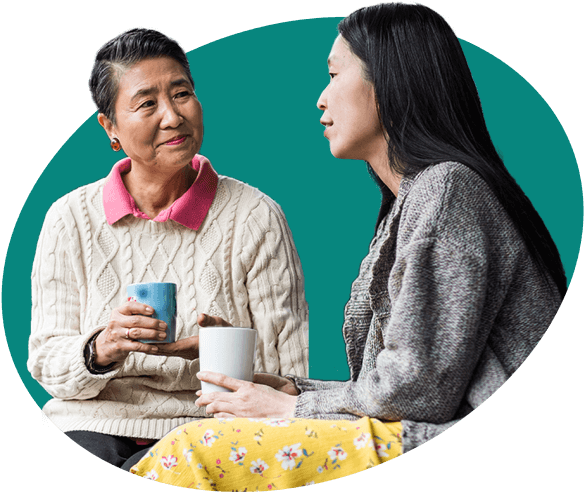If one parent has a BRCA mutation, each child has a 50% chance of inheriting the mutation.
How Are BRCA
Mutations Inherited?
Mutations can be hereditary, meaning they are passed on from a parent to their children. Each child has a 50% chance of inheriting the mutated gene from the parent who carries the mutation.
Detecting a BRCA mutation could help inform other members of your family that they may have an increased risk of developing certain cancers and make informed decisions about their health.
Learn how Jessica, a real
breast cancer patient, took charge of her health by getting BRCA tested after learning she was at a high risk of inheriting the BRCA mutation
from her mother.
What if You Have an Inherited BRCA Mutation?
-
children-siblings
-
siblings-parents
Your children each have a 50% chance of inheriting the mutation
Your siblings (brothers or sisters) each have a 50% chance of having the mutation
There’s a 100% chance that one of your parents has the mutation
-
children-mutation
-
siblings-mutation
-
parents-mutation
It’s important to know if your family has a history of BRCA
mutations so that you and your family can take action.


Not a real caregiver
or patient.
How Should You Inform Your Family About Their Risk?
Facing Our Risk of Cancer Empowered (FORCE) offers tips for talking to your family about hereditary cancers.
Visit FORCE >AstraZeneca is not affiliated with the organization above and does not control, review, or endorse third-party content and is not responsible for the content.
Talk to your doctor or a genetic counselor if you’re concerned
about your family’s risk.



